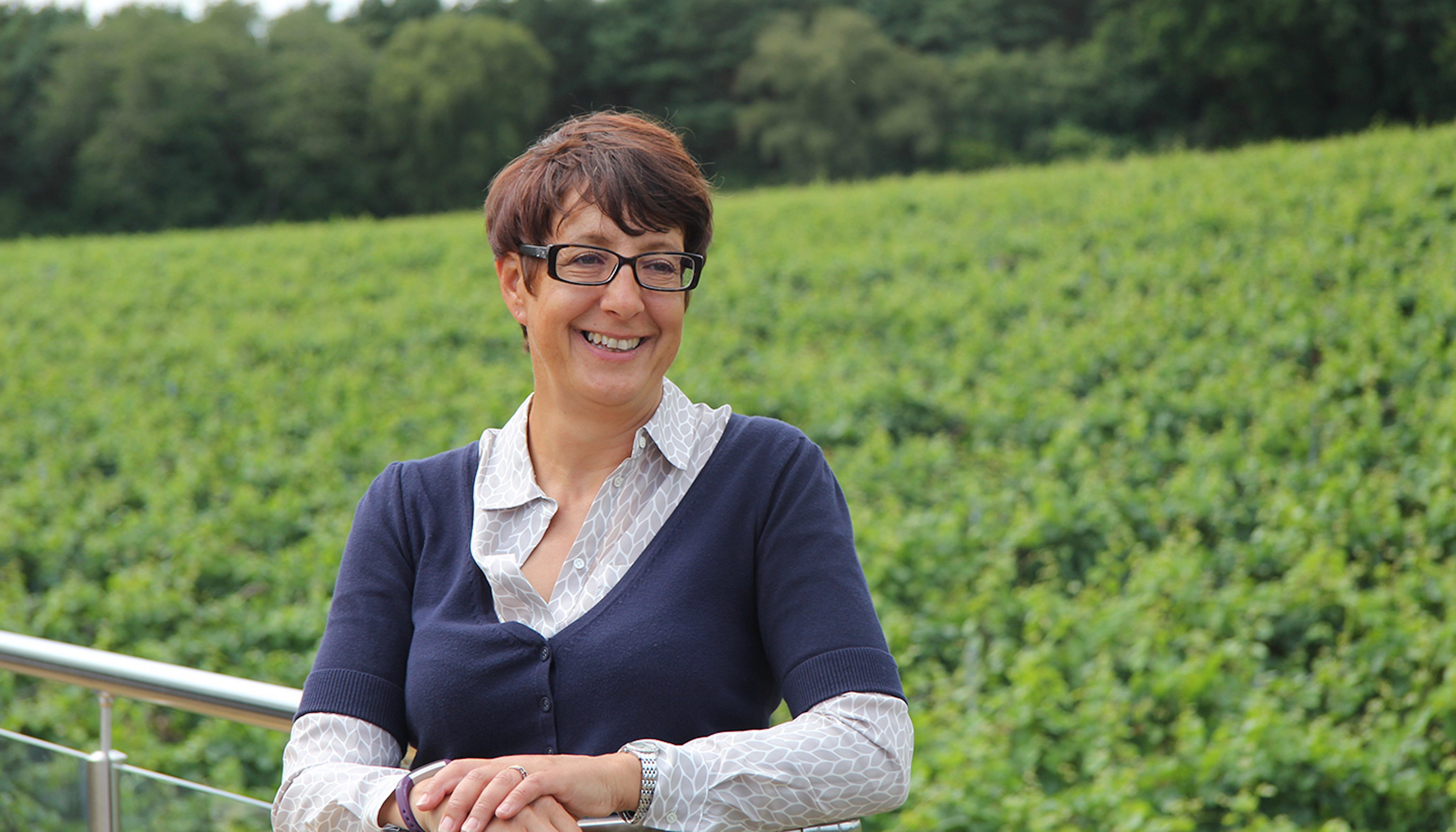You have been in your role for nearly a year - how has it gone and what were your initial targets?
I’ve certainly hit the ground running. The wine industry is expanding rapidly and due to the industry's dynamic nature there is a significant amount of work to be done to progress and challenge the industry, particularly from the educational standpoint and the significant role we play in educating and training students.
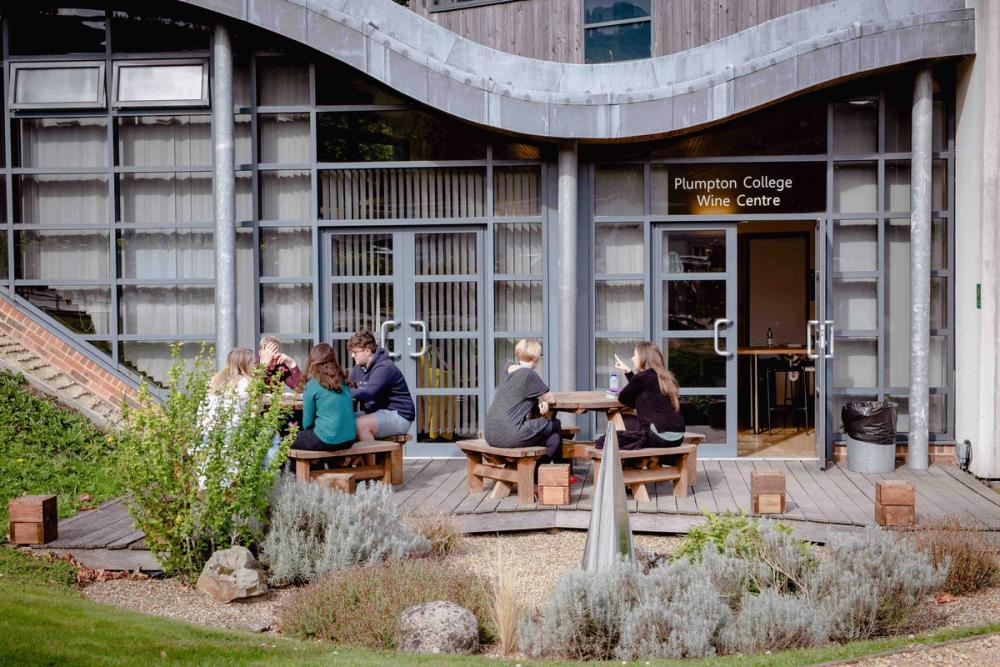
Sam Linter says it is up to Plumpton's wine division to help the UK's winemaking industry grow by helping to educate the next generation of viticultural talent. Picture Christoper Lanaway
That said, we have made some great progress over the last year. Upon starting the role in September, it was important for me to first settle the team and create cohesion within the department at the start of the academic year.We are in the process of finalising the National Competency Framework through consultations with industry experts and additionally, we aim to identify skill gaps and develop courses to meet the evolving needs of the industry. I am pleased to report that we have made great strides in achieving these goals and I am looking forward to continuing to contribute to the growth and development of the wine industry.
What have you been most proud of achieving since arriving last September?
I think one of my proudest achievements in the last year has been the consolidation and enhancement of our existing initiatives. Notably, the development and implementation of the National Competency Framework, along with the creation of tailored short courses, which will be pivotal in addressing skill gaps and meeting the evolving needs of the industry. These achievements not only reflect our commitment to academic excellence but also our dedication to preparing individuals for successful careers in the wine sector.
I’m also delighted to say we are finalising the exploration of planting a new vineyard at the Plumpton site which will be in 2026. The vineyard will not only allow us to increase production for a commercial perspective but also this vineyard will involve incorporating smart agri-tech practices and regenerative techniques.
The integration of smart agri-tech practices will also transition into our winery operations, which will be a significant accomplishment that aligns with our mission to stay at the forefront of industry advancements.
By embracing the future trends of viticulture, we aim to establish Plumpton as a leading institution for training individuals in the wine industry, both nationally and internationally, offering hands-on training that combines theoretical knowledge with practical experiences.
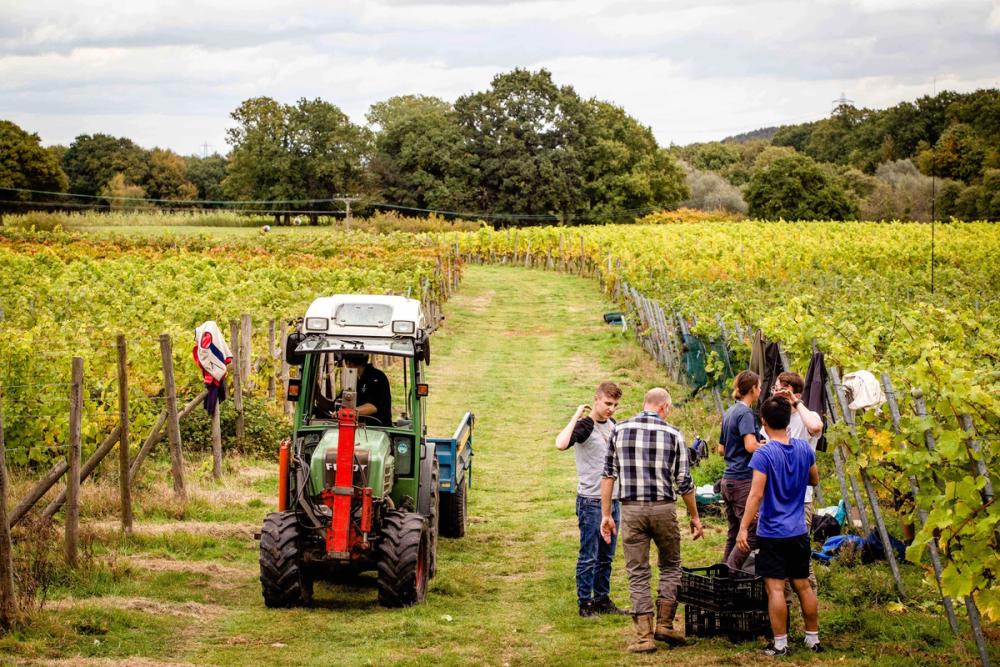
Plumpton is investing in a new vineyard to help its students study new viticultural and sustainable winemaking practices
Finally, we must mention the recognition through the Queen's Award. Winning the prestigious Queen's Award earlier this year really solidifies the dedication and quality of the wine division at Plumpton, reinforcing our position as a globally respected institution in the field.
What are your outstanding ambitions at Plumpton as the Wine Director?
My primary ambition is quite simply to establish our institution as a global leader in providing top-tier education and training in wine business and wine production. This vision entails boldly setting the benchmark for excellence not only within our sector but also on an international scale. By offering innovative and comprehensive programs, we aim to equip our students with the knowledge, skills, and experiences necessary to excel in the dynamic wine industry, both locally and globally.
What have been the big overall changes in the wine division in the last few years?
There have been a number of significant developments in the wine division over the past few years, most notably the implementation of the Apprenticeship Scheme for Viticulture. The introduction of this scheme has provided hands-on learning opportunities for producers and students across the UK who are interested in viticulture, fostering practical skills and industry-specific knowledge.
An important part of our education programs is organising field trips and encouraging active engagement with the wine industry, both nationally and internationally, and this has been bolstered immensely over the last few years as it is very important to enrich the educational experience by giving students exposure to real-world practices and trends.
We have also seen the increase of the number of guest lecturers broadening students' perspectives and deepening their understanding of the whole wine business, offering valuable insights into the operational dynamics and career paths within the sector. The addition of free French language courses as an enhancement for students reflects our commitment to holistic education.”
What range of courses are you now offering that are new or have been expanded?
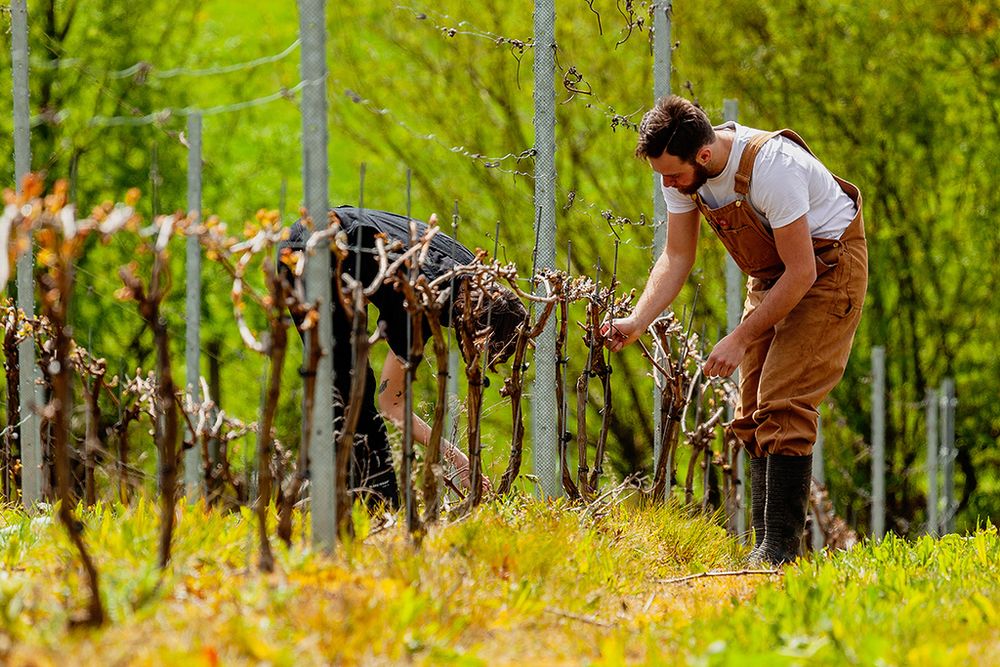
Plumpton is looking to expand the range of courses it is able to offer its current and future students
I think it’s important to highlight that Plumpton is dedicated to continuously expanding and enhancing our current course offerings to meet the evolving needs of the wine industry. Over the past few years, we have undertaken significant efforts to enrich our degree programs.
BA Wine Business program has recently undergone enhancements to ensure its relevance and alignment with current and future industry demands. By refining the modules taught in this program, we aim to provide students with a comprehensive education that covers all aspects of business, from marketing and sales, commercial understanding to distribution and entrepreneurship.
The BSc Viticulture & Oenology program has also seen developments to offer students a cutting-edge education in grape growing and winemaking. By focusing on practical skills and industry-specific knowledge, this program prepares students for careers in vineyard management, wine production, and quality control.
As a college it is important to recognise the importance of flexibility in education, and so we have recently introduced 15 comprehensive Continuing Professional Development (CPD) Short Specialised Courses, tailored for wine enthusiasts and industry professionals seeking to enhance their expertise in the field.
Starting this September these credentials will allow students to enrol in standalone degree modules, such as English Wine & Sustainability, Global Wine Business, Sparkling Wine Production, Fundamentals of Wine Science and Vineyard Operations, offering a hands-on, immersive learning experience that enriches knowledge of the industry.
What calibre of students does Plumpton attract?
College wide, Plumpton has always attracted students and staff with diverse backgrounds, really emphasising the inclusivity, gender equality, and consistency within both the student body and staff. Within the division we prioritise creating a welcoming environment that supports individuals to succeed regardless of their age or background. Our commitment to diversity is reflected in our recruitment, curriculum, and student support services.
What are the most popular courses and why do you think that is?
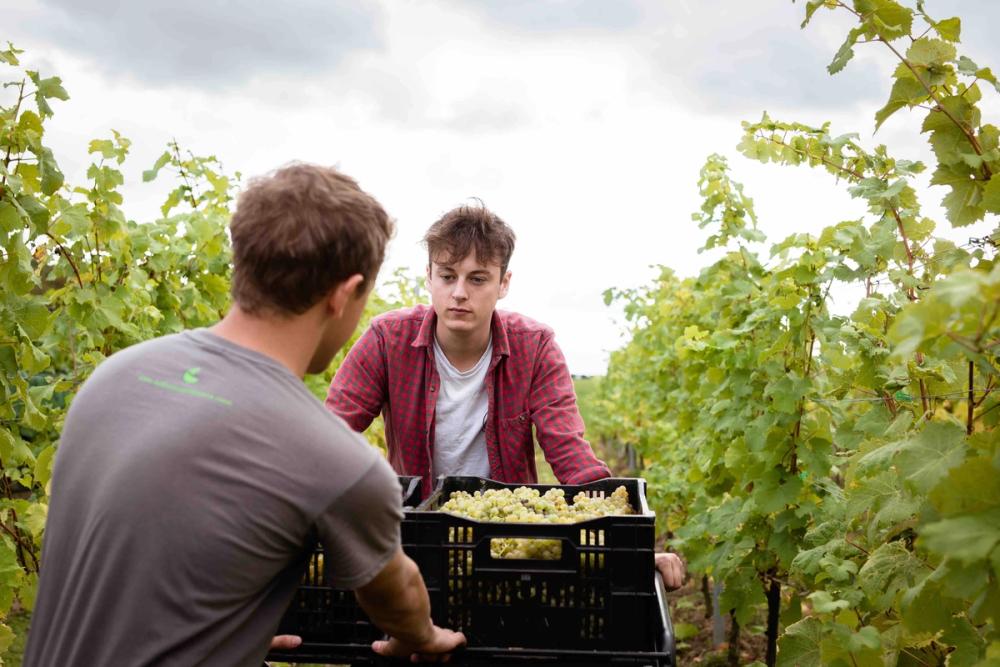
Plumpton has helped produce some of the winemaking talent now working in English and Welsh vineyards
The most popular courses are the Production degree course in Oenology and Viticulture, and the Wine Skills Principles of Vine Growing course.
In recent years, there has been a surge in the number of individuals planting vineyards and entering the wine industry. This growing interest in viticulture is driven by a desire to learn more about grape growing, winemaking, and the intricacies of vineyard management. The Principles of Vine Growing course at Plumpton provides aspiring viticulturists with essential knowledge and skills on vineyard production.
The wine industry is recognised as one of the fastest-growing agricultural sectors, according to the Department for Environment, Food & Rural Affairs (DEFRA). This growth has sparked excitement and enthusiasm among individuals looking to pursue careers in viticulture and oenology. Our degree programs equip students with the expertise and practical experience needed to succeed in this dynamic and thriving industry.
As the demand for skilled professionals in viticulture continues to rise, it is important that Plumpton remains at the forefront of providing high-quality education and training to support the next generation of vineyard managers and winemakers.
Are there opportunities for the trade and industry professions to be involved in what you do in terms of doing talks and mentoring?
Absolutely, there are many opportunities for professionals in the wine trade and industry to get involved with Plumpton College's Wine Division through talks, mentoring, and other forms of engagement. We highly value industry collaboration and recognise the immense benefits that mentorship and industry involvement can bring to our students and programs.
Establishing a structured mentoring scheme for students is something I am keen to develop further. Mentors can play a crucial role in helping students navigate their educational and professional development, providing feedback, advice, and encouragement along the way.
If anyone is interested in becoming a mentor, participating in industry talks, or exploring ways to engage with students do please get in touch. We certainly welcome and encourage your involvement so we can ensure that our students are well-prepared, knowledgeable, and equipped to excel in the dynamic world of wine production and viticulture.
What do you see as the biggest outstanding opportunities for English wine?
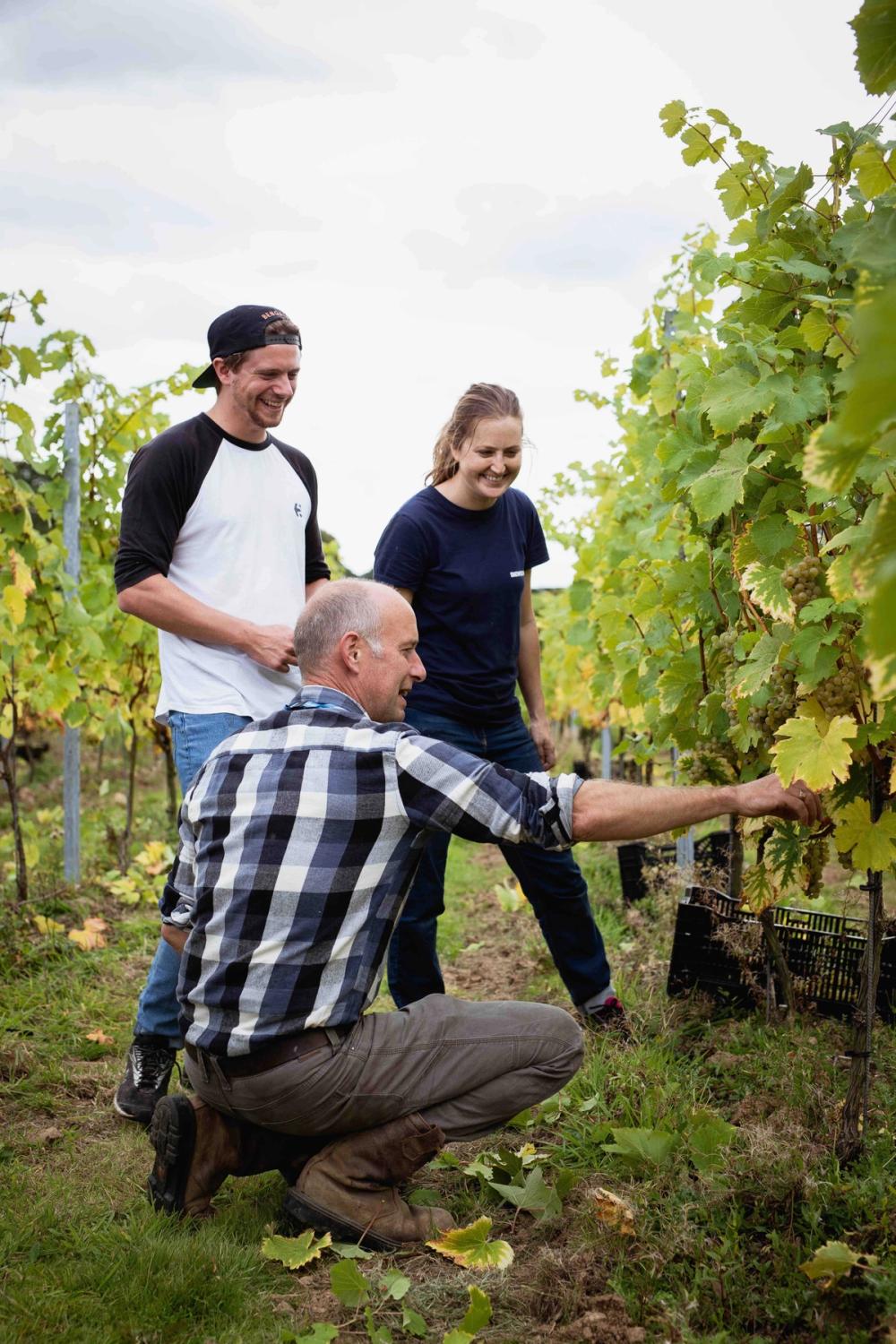
There are opportunities for anyone in the UK wine trade to get involved in training and mentoring opportunities with Plumpton College
The English wine industry is experiencing a period of exciting growth and development, with several outstanding opportunities on the horizon.
While traditional method sparkling wines have been a standout success for English wine producers, there is an opportunity to explore and innovate with different production methods to cater to diverse consumer preferences and market segments. By experimenting with various sparkling wine styles such as Charmat, English sparkling winemakers can offer a wider range of products tailored to different markets and consumer tastes.
The emergence and development of still wine production in the UK also presents significant opportunities for winemakers. The quality of English still wines has been gaining recognition, with some very exciting varietals hitting the market. The continued focus on producing high-quality still wines, such as Pinot Noir for red wine, showcases the potential for English winemakers to carve out a niche in the global wine market.
There is also a growing interest in English wines internationally, supported by strong backing from businesses and trade partners. To capitalise on this momentum, continued support from the government in terms of promotional efforts, regulatory simplification, and market access is crucial for expanding export opportunities and increasing the presence of English wines on the global stage.
Overall, the English wine industry is poised for continued growth and success. By leveraging these opportunities and fostering support from both industry stakeholders and government entities, the English wine sector has the potential to further establish itself as a prominent player in the global wine market.
What do you see as biggest challenges and what advice would you give to overcome them?
One of the biggest challenges facing the English wine industry is the need for a growing and skilled workforce to meet the projected demand. To address the workforce shortage and meet the target of 30,000 employees by 2040 set by Wine GB, it is crucial to focus on workforce development and training initiatives within the UK.
Investing in education and training programs that equip individuals with the necessary skills and knowledge for roles in viticulture, winemaking, hospitality, and other areas of the wine industry is essential.
Engaging with government bodies and policymakers to advocate for support and funding for workforce training and development initiatives is vital to hit this target. Collaborating with relevant agencies to address regulatory barriers, provide financial assistance for training schemes, and promote the attractiveness of careers in the wine industry can help overcome the workforce challenge.”
Anything else to say?
Since becoming the wine director at Plumpton College, it has been an exhilarating and rewarding journey. We have encountered exciting challenges and are now presented with promising prospects for further training in the wine industry. We are actively exploring opportunities to design courses that will enhance the skills of those already working in the industry and provide training for individuals looking to enter this field.
* If you would like to find out more about Plumpton College and its wine division go to its website here.
